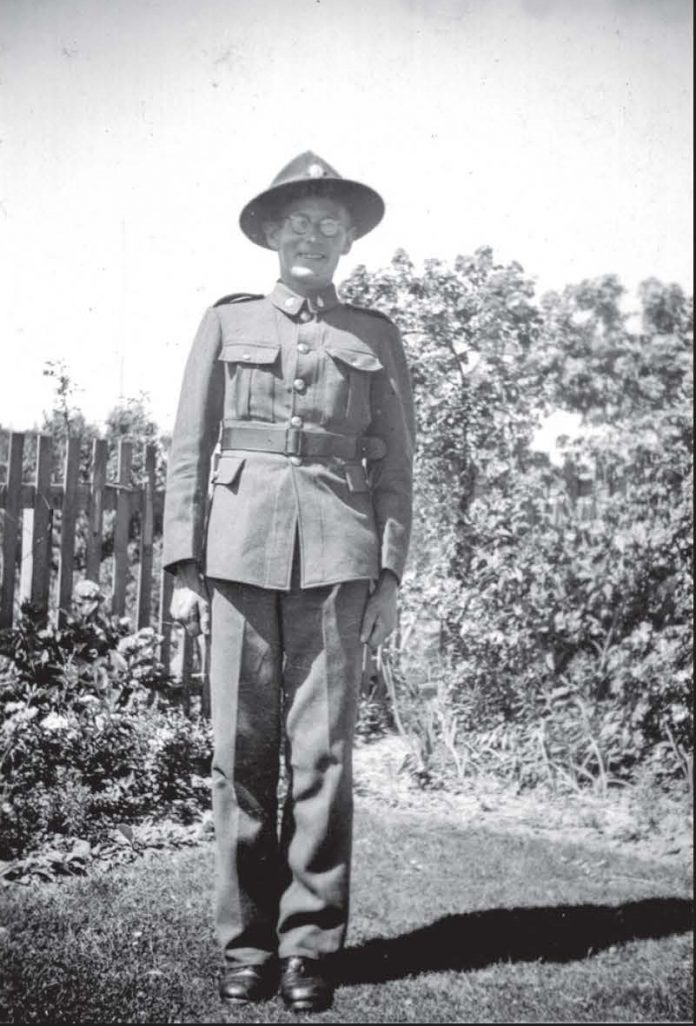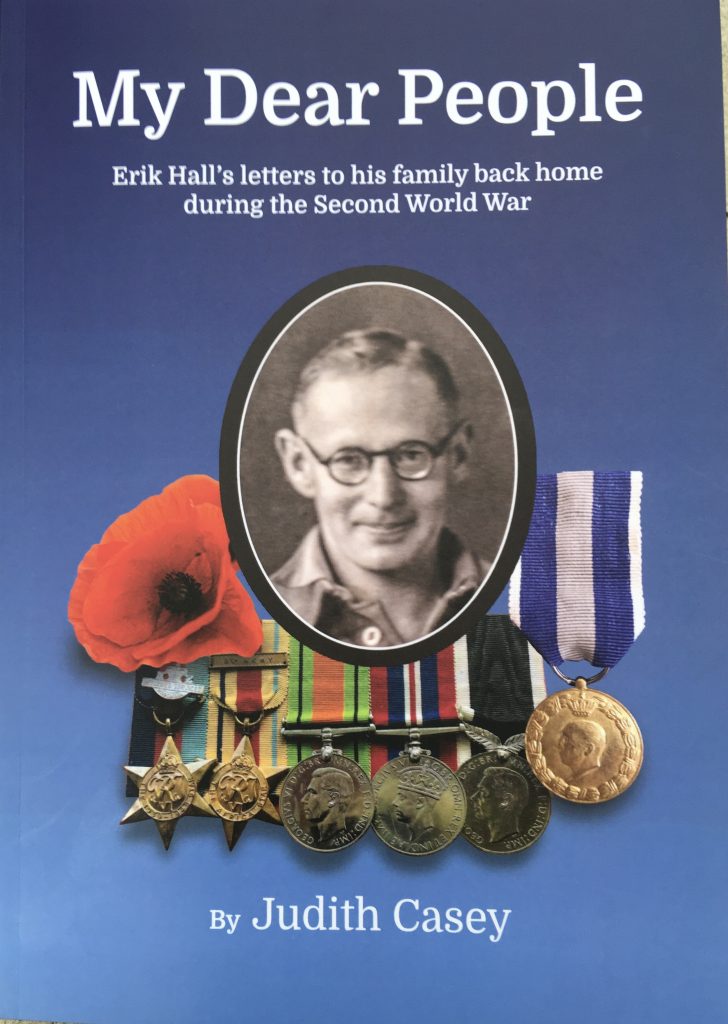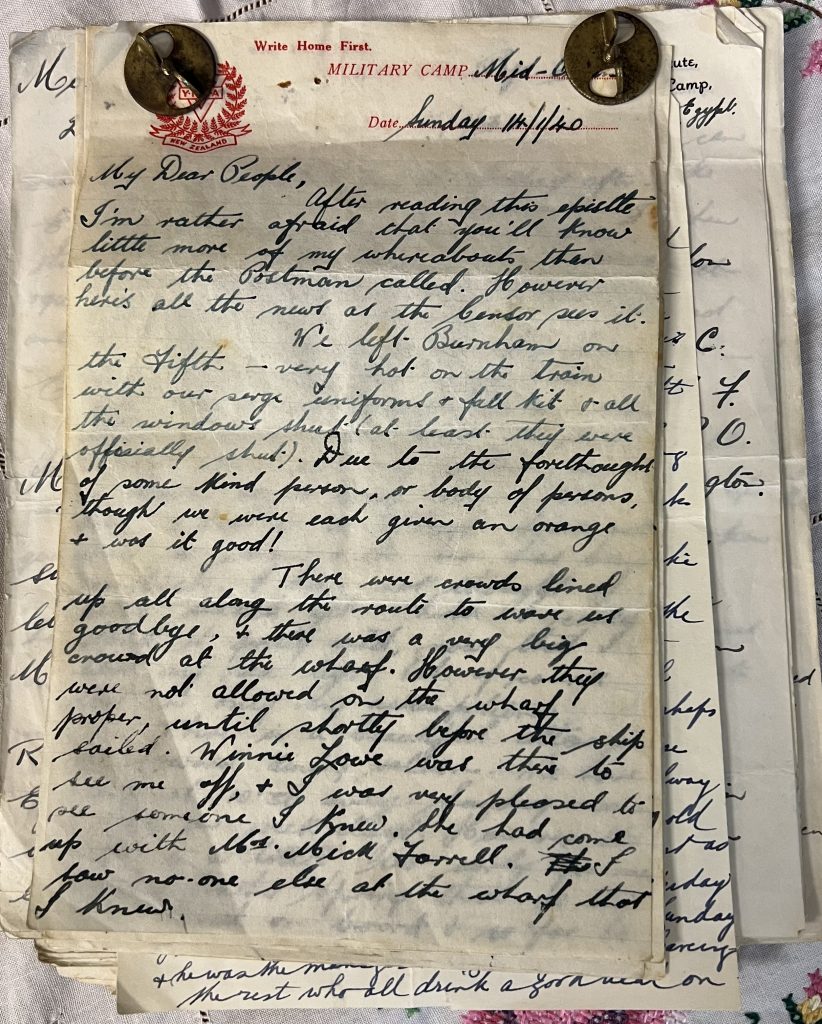
Just months before he died at the age of 91, Timaru man Erik Hall casually mentioned his war letters were all in a brown satchel.
It was the first any of his six daughters knew of their existence.
A couple of years earlier, he had sat down with grandson Tim Bunckenburg and recounted three particular stories about the war, which had been duly noted down.
But, like many men returned from World War 2, Mr Hall did not speak much about his service.
His father, a careful recordkeeper, had compiled the letters his son had sent from the other side of the world, and duly returned them to their author.
Eighty years since they were written, and after a solid year’s work, daughter Judith Casey is about to launch her book My Dear People, a work that safeguards and shares his letters, photographs and diaries for his family and a wider audience.
The title comes from the salutation at the top of most of Mr Hall’s letters — after being read by his own parents, they were often shared among the wider family, friends and neighbours.

Mr Hall was born on January 26, 1915 in Timaru, to William Henry Hall and Nellie Josephine Hall (nee O’Neill). He was one of 10 children born to the couple.
When war broke out in September 1939, Mr Hall enlisted immediately, going to Burnham Camp in Canterbury.
He left New Zealand in January, aged 24, from Lyttelton on the Sobieski, a new Polish cruise liner on her maiden voyage.
He served with the Second New Zealand Divisional Supply Company as part of the Army Service Corps.
Mr Hall’s role as a driver was to keep fresh supplies at the ready for those fighting on the front.
He returned to New Zealand in July, 1943, and eventually settled on his first farm at Maungati.
Mrs Casey will launch the book in Christchurch tomorrow to an invited audience of wider family and friends.
A small ‘‘family launch’’ was held at Easter. But when she first laid eyes on the collection of letters and diaries, her first thought was not so much to write a book, but to type them out to ensure they were secured for future generations, just as she had been re-typing her father’s many poems.
‘‘Just learning the letters actually existed in the first place was an amazing gift, as dad rarely spoke about the war.
‘‘He said, ‘granddad gave them all to me. You can have them if you want. I don’t want them any more’.’’

Despite the letters being written by her father when he was a young, single man, Mrs Casey said his voice came through strongly.
‘‘It was like hearing dad speak . . .I was reading them in dad’s voice, and I could see him and hear him very well.’’ She noticed how mindful he was of his mother — her grandmother — as he wrote, trying to protect her from worrying about him.
The original letters and diaries will be archived at Christchurch’s library.
‘‘They were very excited to see my father’s war letters. They said it’s not often they get them in such original and good condition.’’
Mrs Casey plans to donate a copy of the book to both the Timaru District Library and Timaru Boys’ High School.
Safeguarding her father’s writing for future generations had now been assured, but Mrs Casey also hoped the book would share something of his spirit, too.
‘‘My father was a man who loved living life.
‘‘He always kept his dreams alive.
‘‘I hope that succeeding generations will also keep their dreams alive.’’




